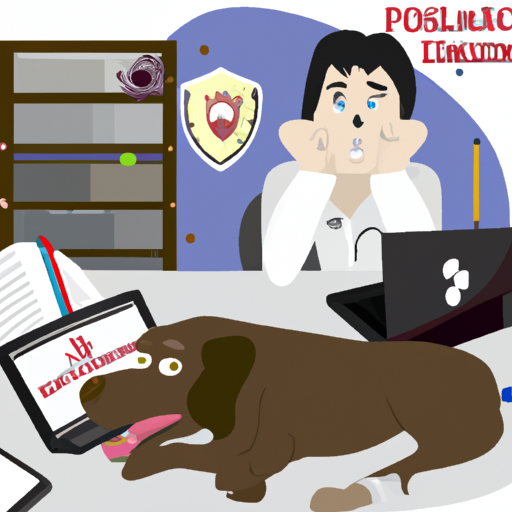As a caregiver, you bear the responsibility of ensuring the health and wellbeing of your beloved furry friend. In this article, we will delve into an important health issue that could potentially affect your pet – Leptospirosis, often shortened to ‘Lepto’ in dogs.
What is Leptospirosis?
Leptospirosis is a bacterial disease that affects both humans and animals. It’s caused by bacteria of the genus Leptospira. In dogs, the bacteria can cause damage to the kidneys and liver, amongst other serious effects.
Dogs typically contract the bacteria from contaminated water, soil, or from the urine of infected animals. This disease can be life-threatening, but it is preventable through vaccination.
Symptoms of Lepto in Dogs
Just as you would notice if your own child was under the weather, it’s crucial to recognize when your dog might be feeling unwell. The symptoms of Lepto in dogs can vary, but some common signs include:
- Fever
- Muscle pain
- Vomiting or diarrhea
- Jaundice (yellowing of the skin and eyes)
- Increased thirst and urination
In severe cases, dogs can also suffer from kidney damage, liver failure, or even death.
How is Lepto Diagnosed and Treated?
Lepto can be challenging to diagnose because its symptoms are similar to many other illnesses. Veterinarians usually perform a blood test or a urine test to confirm the presence of the bacteria.
Once diagnosed, dogs are typically treated with antibiotics to kill the bacteria. In severe cases, hospitalization may be necessary for fluid therapy and other supportive treatments.
| Treatment | Description |
|---|---|
| Antibiotics | Kills the bacteria causing the disease |
| Fluid Therapy | Helps to prevent dehydration and maintain kidney function |
| Supportive Care | Assists in managing symptoms and improving overall health |
How to Prevent Lepto in Dogs
Prevention is always better than cure, and this adage is particularly true when it comes to Lepto. Here are some simple steps you can take to protect your dog:
- Vaccinate: There is a vaccine available for Lepto. While it doesn’t cover all strains of the bacteria, it can still provide significant protection.
- Avoid Contaminated Areas: Try to keep your dog away from potentially contaminated water or soil, especially in areas with known cases of Lepto.
- Control Rodent Population: Since rodents can carry the bacteria, keeping their population under control can help prevent the spread of Lepto.
Frequently Asked Questions
Q: Is Lepto contagious to humans?
A: Yes, Lepto can be transmitted from dogs to humans. It’s important to practice good hygiene, especially if your dog has been diagnosed with Lepto.
Q: Can Lepto be treated at home?
A: While mild cases may be treated at home with antibiotics, severe cases often require hospitalization. Always consult with your vet for the best course of action.
Q: How often should my dog be vaccinated for Lepto?
A: The frequency of vaccination varies based on your location and your dog’s lifestyle. Your vet can provide the best advice.
Remember, as a caregiver, your vigilance is key to the health of your pet. Stay informed, stay alert, and your furry friend will thank you with a wagging tail and a happy, healthy life.



